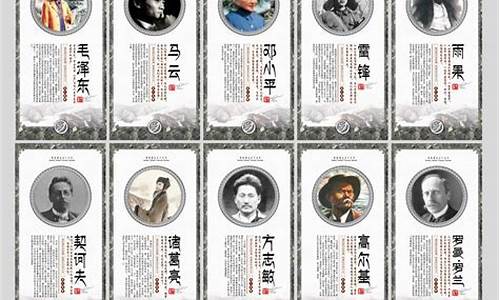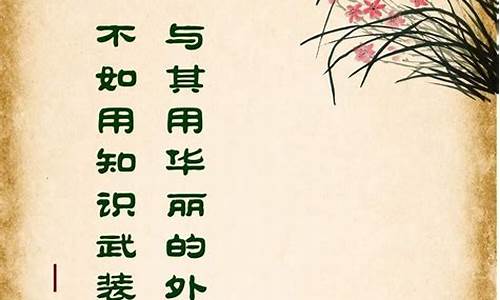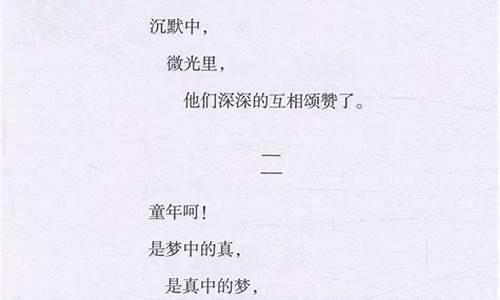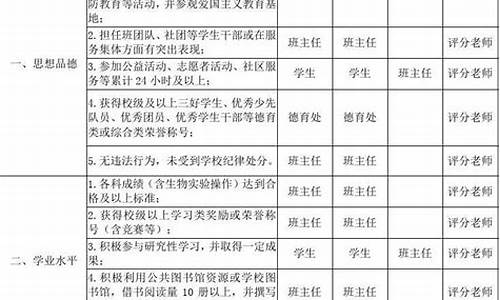句子的英文怎么写怎么读_句子的英文是什么意思怎么写的
1.英语句子怎么写?
2.英语句子顺序怎么写 有什么技巧
3.英文是什么意思?
4.英语句子的基本句型有哪些?分别是什么意思?
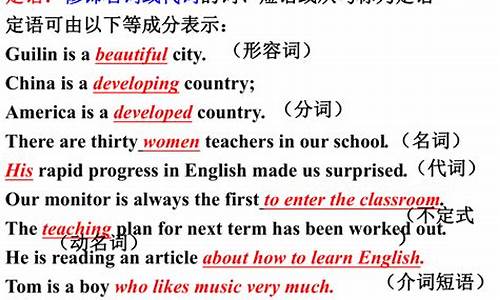
He spent yesterday hidden away in his country retreat.
解答:以上属于双重谓语用法,意思,SPENT 即充当实义动词,有充当连系动词使用,表示一个动作发生时,伴随着另外一个动作,上面句子可以改写成下面句子:
He was hidden away in his country retreat when he spent yesterday
He hid himself away in his country retreat when he spent yesteday
主语:He (他)
谓语:spent (度过)
宾语:yesterday (昨天)
状语:hidden away in his country retreat(躲藏在他家乡下休息寓所里)
句子意思:他是躲在他乡下休息寓所度过了昨天.
英语句子怎么写?
这些都是问句的开头
what are :……是什么?
May i :我可以……吗?
Can i :我能……吗?
Where are :……(复数的东西或人)在哪里?
Where is :……(单数的东西或人)在哪里?
Where did :……在哪里做了这个事?
There is :这里是……
Is there :这里是……吗?
英语句子顺序怎么写 有什么技巧
训练工作要达到这样的要求:任何一句汉语,能在最快的时间内想到它
的英文的写法即语法结构。用最合理的句型表达出来。
最最重要的是,每句话要写得简练,直截了当的说明事情。然后再进一步解释事情。
第一时间确定主谓宾,定状补。
确定句型(简单句,并列句、复合句、非谓语从句)看这句话当中有几个动词。
如何写英文句子语法口诀:主谓宾,定状补;主杆枝叶分清楚;谓前
为状谓后补;定语必居主宾前;
写名子一定要简化。最少量的词表达最完整的意思。主要注意动词的运
用就行。(就是说事情,用最简洁的话说明一个意思)
英文是什么意思?
主谓宾状定补。英文句子一般是先写主语,再写谓语、宾语的顺序,如果还有其他的成分,一般会在主谓宾后面写。
写英语句子时顺序是啥
英语与其他所有的印欧语系语言相比,没有那么复杂的屈折变化,也失去了几乎所有阴阳性变化,基本上,英语除了人称代词以外,已失去了性和格的分别了,它更强调词语间相对固定的顺序,也就是说英语正朝向分析语的方向发展。
英文句子一般是主谓宾的书写顺序,如果还有其他的成分,一般会在主谓宾后面写。因为英文的句式共有5种,主语+谓语,主语+谓语+宾语,主语+系动词+表语,语+谓语+间接宾语+直接宾语,主语+谓语+宾语+宾语补足语。
英语的句子正确顺序主谓宾是主干,定状补是下属.定状补可以安插在主谓宾之间。
1) 状语是指描述被描述对象的状态,包括时间状语,地点状语,方式状语,伴随状语,让步状语等
2) 定语是指被描述对象(名词,代词)的特征,包括颜色,气味,重量,年龄,材料等
3) 表语一般是be 动词以及某些特殊动词(比如turn ,smell等) 后面的形容词,分词,不定式等
4) 主语指的是动作的施动者,或者是被描述的对象,包括名词,代词,非谓语动词(不定式,动名词,过去分词作主语)等
5) 谓语指的是动作本身(也就是动词本身),be 动词
6) 宾语指的是动作的承受者,或者是与主语相对比的对象,也包括名词,代词,等
7) 从句指的是复合句中的起从属作用的句子,复合句指的是一个句子中有两重或者两重以上的主谓宾(定状补)成分,这几个有独立主谓宾结构的句子通过连词连接(比如and which that where what等),比如I want to tell you that he is a cheat(我想告诉你他是个骗子),这里有两套主谓宾(定状补先不说)第一套是主语I 谓语want 宾语是tell后面的成分(you that he is a cheat);第二套:主语he 谓语is 宾语a cheat ,这两个句子通过连词that 连接,通过句子意思可以判断:“我想告诉你“是主句,”他是一个骗子“是从句。
英语句子的基本句型有哪些?分别是什么意思?
英语(英文:English)是一种西日耳曼语支,最早被中世纪的英国使用,并因其广阔的殖民地而成为世界使用面积最广的语言。
英国人的祖先盎格鲁部落是后来迁移到大不列颠岛地区的日耳曼部落之一,称为英格兰。这两个名字都来自波罗的海半岛的Anglia。该语言与弗里斯兰语和下撒克森语密切相关,其词汇受到其他日耳曼语系语言的影响,尤其是北欧语(北日耳曼语),并在很大程度上由拉丁文和法文撰写。
英语中所有的词可分成十大类,每一类词在句子中都有其特定的位置和作用。
这十大词类是:
名词(n.):表示人或事物的名称的词。
形容词(adj.):表示人或事物的特征的词。
副词(adv.):修饰动词、形容词和副词的词。
代词(pron.):是代替名词、形容词和数词的词。
数词(num.):表示数量和顺序的词。
动词(v.):表示动作和状态的词。
冠词(art.):与名词连用,起说明人或事物的作用。
介系词(prep.):通常置于名词和代词之前,表示名词和代词与其他词的关系。
连接词(conj.):连接词与词、短语与短语、句子与句子的词。
感叹词(int.):表示说话人感情或语气的词。
一、以形式主语it引导的句型。
句型1. It hened(chanced) that +clause. = sb. hened /chanced sth. = sb. did sth. by chance. 如:
It hened that he was out when I got there. 当我到那儿时,碰巧他不在。=He hened to be out when I got there.= It chanced that he was out when I got there= He was out by chance when I got there.
句型2、It seems that sb. do/ be doing/ he done/ had done= Sb. seems to do/ be doing/ he done/ had done 如:(还有动词ear可这样使用)
It seemed that he had been to Beijing before.好象你以去过北京。=He seemed to he been Beijing before.
句型3. It is / was+被强调的部分+that(who)+剩余的部分.如:
It wasn’t until he came back that I went to bed.直到他回来我才睡觉。(一定要注意被强调句型谓语动词否定的转移,及形式)。
It was because he was ill that he didn’t come to school today.只因为他有病了今天没有来上学。(只能用because而不能用for, as 或since)
It is I who am a student. 我确实是个学生。(句中am不能用are来代替。)
句型4、It is high time (time/ about time) (that) 主语+should do / did+其它。(注意从句中的谓语动词用的是虚拟语气)
It is high time that we should go / went home.我们该回家了。
句型5、It is / was said ( reported…)+that+从句. 如:
It was said that he had read this novel.据说他读过这篇。=He was said to he read this novel.
句型6、It is impossible / necessary/ strange…that clause.(从句中的谓语用should+do / should he done,其形式是虚拟语气。)如:
It is strange that he should he failed in this exam.真奇怪,他这次考试没有及格。
句型7、It is + a pity/ a shame…that clause.(注意从句中的谓语动词用should do或should he
done的形式,但should可以省略。)如:
He didn’t come back until the film ended. It was a pity that he should he missed this film. 他直到**结束才回来。他没有看到这部**真可惜。
句型8、It is suggested / ordered/ commanded /…that +clause.(从句的谓语动词用should do, 但should可以省略。)如:
It is suggested that the meeting should be put off.有人建议推迟会议。
句型9、It is/was+表示地点的名词+where+从句。(注意本句不是强调句型,而是以where引导的定语从句。)如:
It was this house where I was born.请比较:It was in this house that I was born. (后一句是强调句型。)
句型10、It is / was +表示时间的名词+when+从句。(注意本句型也不是强调句型,而是以when引导的定语从句。)如:
It was 1999 when he came back from the United States. 请比较:It was in 1999 that he came back from the United States.
句型11、It is well-known that+从句。如:
It is well-known that she is a learned woman. 众所周知,她是个知识渊博的妇女。
句型12、It is +段时间+since+主语+did. 请比较:
It was +段时间+since+主语+had done. 如:
It is five years since he left here.他已经离开这儿五年了。
It was five years since he left here.(同上)
句型13、It +谓语+段时间+before+主语+谓语.( before引导的是时间状语从句。) 如:
It wasn’t long before the people in that country rose up.没有多久那个国家的人民就起义了。
It will be three hours before he comes back.三个小时之后他才能回来。
句型14、It is +形容词+for+ sb.+ to do. 如:
It is impossible for me to finish this work before tomorrow.我明天之前完成此工作是不可能的。
句型15、It is +(心理品质方面的)形容词+of + sb. + to do. = 主语+ be +形容词+to do.(常用的形容词有:kind, stupid; foolish, good, wise等。)如:
It is kind of you to help me.=You are kind to help me.你真好给我提供了帮助。
二、定语从句:
句型16、由as引导的非限定性的定语从句。如:
As we he known, he is a most good student.众所周知,他是个很好的学生。请比较:It is well-known that he is a most good student.(前一个是定语从句,而后者是个主语从句。)
句型17、由which引导的非限定性的定语从句。如:
He is a professor, which I he been looking forward to becoming.
他是个教授,那是我一直盼望的职业。(因为先行词professor是表示职业的名词,因此引导词用which,而不用who。(注意:关于which和as之间的比较请看语法的定语从句部分。)
句型18、由where, when引导的定语从句(其中包括限定性的或非限定性的。)如:
This is the house where I used to come.请比较:This is the house which / that I used to come to.
This is the day when I joined the Party.请比较:This is the day which / that I joined the Party on.
说明:关于that与which之间的区别,请看语法中的定语从句。
三、让步状语从句
句型19、No matter what / which / who / where / when /
whose+从句,+主句。注意从句中的时态一般情况用一般现在时态。如:
No matter what you do, you must do it well.请比较:Whatever you do, you must do it well. 无论你做什么,一定要做好。
No matter where you go, please let me know.请比较:Wherever you go, please let me know.你无论去哪儿,请通知我。
说明:这两种句型形式不同,而意义完全相同。
注意:I will tell whoever would like to read it.
句中的whoever不能用whomever来代替。因为它即作动词tell的宾语,又作后面从句的主语。
四、条件状语从句
句型20、When / So long as / As long as / Once +从句,+主句。(从句也可以放在主句之后。)如:
As long as you give me some money, I will let you go.只要你给我一些钱,我就让你走。
Once you he begun to learn English, you should learn it well.
一旦你开始学习英语,你应该把它学好。
句型21、主句+on condition that+从句。如:
I will go with you on condition that you give me some money.我和你一起去的条件是你给我一些钱。
句型22、主句+unless+从句.(注意:由于unless本身是否定词,所引导的从句的谓语动词用肯定。)如:
I will go there tomorrow unless it rains.我明天去那儿除非下雨。
句型23、祈使句,+and/ and then+主句。(注意:祈使句也可用一个名词短语。)如:
Use your head, and you will find a good idea.动脑筋想一想,你就会想出一个好主意。
Another word, and I will beat you.你再说一句,我就揍你。
句型24、If +necessary / impossible/ important等,+主句。如:
If necessary, I will do it. 如果有必要的话,我来做此事。
五、原因状语从句
句型25、主句+in case+从句。(in case表示以免)如:
I will take my raincoat in case it rains.我要把雨衣带上以免下雨。
句型26、主句+due to / because of / owning to / + the fact that +从句。如:
He did not come to school because of the fact that he was
ill.由于他有病了,所以没有来上学。
六、时间状语从句
句型27、When / While / As +从句,+主句。(关于它们之间的区别请看语法。)如:
When I was in the country, I used to carry some water for you.当我在农村时,我常常给你打水。
句型28、主句+after / before +从句. 如:
They hadn’t been married four months before they were
devoiced.他们绘结婚不到四个月就离婚了。
We went home after we had finished the work.我们做完此工作就回家了。
句型29、主语+肯定谓语+until+从句(或时间).请比较:
主语+否定谓语+until+从句。如:
I worked until he came back.我一直工作到他回来。
I didn’t worked until he came back.他回来我才开始工作。
句型30、As soon as / Immediately / Directly / Instantly / The moment / The instant / The minute +从句,+主句. 如:
My father went out immediately I got home.我一到家,我父亲就出去了。
句型31、No sooner +had + 主语+done…than +主语+did. 请比较:
主语+had + no sooner +done…than +主语+did. 如:
No sooner had I got to Beijing than I called you.我一到北京就给你打电话了。
I had no sooner got to Beijing than I called you.
句型32、Hardly +had +主语+done…when / before + 主语+did.请比较:主语+had +hardly +
done…when / before +主语+did.
Hardly had she had supper when she went out. 她一吃完晚饭就出去了。
She had hardly had supper when she went out.
句型33、By the time+从句,+主句.(注意时态的变化。)如:
By the time you came back, I had finished this book.到你回来时,我已经写完了这本书。
By the time you come back, I will he finished this book.到你回来时,我将写完这本书。
句型34、each / every time +从句,+主句. (这时相当于whenever 或no matter
when引导的从句。从句也可放在主句之后。)如:
Each time he comes to Harbin, he always drops in on me.每当他来哈尔滨,总是随便来看看我。
七、地点状语从句
句型35、Where +从句,+主句. 如:
Where there is no rain, farming is difficult or impossible.哪里没有雨水,种庄稼是很难的或者是不可能的。
句型36、Anywhere / wherever+从句,+主句. 如:
Anywhere I go, my wife goes too.无论我去哪儿,我的妻子也去哪儿。
I will go wherever you suggest.你建议我去哪儿,我就去哪儿。
八、目的状语从句
句型37、主句+in order that / so that +从句.如:
I got up early in order that I could catch the first bus.我起得很早,以便能赶上早班车。
句型38、主句+for + sb. +to do.(注意动词不定式复合结构在这儿作目的状语。)如:
He came here for me to work out this problem.他来这儿叫我帮他解出这道难题。
九、结果状语从句
句型39、主句+so that+从句. 如:
It was very cold, so that the river froze.天气很冷,因此河水结冰了。
句型40、So+形容词/ 副词+特定动词+主语+…+that+从句.
So interesting is this book that I would like to read it again.这本书那么有趣,我想再读一遍。
句型41、主语+谓语+such+名词+that+从句.如:
He made such rapid progress that he was praised by the teacher.他进步很快,老师表扬了他。
句型42、Such was + 主语+that +从句.(这是个完全倒装句。)如:
Such was the force of the explosion that all the windows were broken.爆炸力这么大,所有的窗户都被震碎了。
十、比较状语从句
句型43、The +形容词比较级……,(主句)the +形容词比较级+……如:
The sooner you do it, the better it will be.越早越好。
句型44、主语+谓语+as +形容词原级+as +被比较的对象. 如:
He is as busy as a bee.他非常忙。
句型45、主语+谓语+the+形容词比较级+of / between …
He is the taller of the two.他们俩人中他高。
句型46、主语+谓语+倍数+as+形容词原级+as+被比较的对象.如:
This room is three times as large as that one.这个房间是那个房间的三倍大。(这个房间比那个房间大两倍。)
句型47、主语+谓语+百分数/倍数+形容词比较级+than+被比较的对象.如:
This city is twice larger than ours.这个城市比我们城市大两倍。
The early rice output in that commune was 200% more than that of 2000.那个公社的早稻产量是2000年的两倍。
句型48、主语+谓语+the size / length/ width/ height +of +被比较的对象.如:
Our building is twice the height of yours.我们的大楼比你们的高两倍。
十一、其它句型
句型49、It doesn’t matter wh-+从句。如:
It doesn’t matter to me what you will do tomorrow.你明天做什么与我无关。
It doesn’t matter whether you will come or not.你来不来无关紧要。
句型50、形容词/ 副词 / 名词(可数单数)+as / though +主语+谓语,+主句.如:
Young as he is, he knows a lot.虽然他很小,但他知道得很多。
Hard he works, I am sure that he can’t pass this exam.虽然他学习很努力,这次考试他肯定不能及格。
Child as he is, he knows a lot.虽然他是个孩子,但他懂得很多。
句型51、Were / Should / Had +主语+谓语,+主句.如
Were I you, I would he gone there yesterday.如果我是你的话,昨天我就去那儿了。
句型52、Only +状语+特定动词+主语+谓语…
Only by this means can I do this work well.只有用那种方式我才能做好此工作。
Only because he was ill did he not come to school.只因为他有病了才没有来上学。
Only then did I realize that I had been wrong.只有那时,我才认识到我错了。
句型53、Not only +特定动词+主语+谓语…but also+主语+谓语…
Not only did he learn English well but also he spoke French very well. 他不但英语学得好,而且法语讲得很流利。
句型54、whether….or…, neither…nor…, either…or…
句型55、主语+dou+whether + 从句. 请比较:
主语+特定否定词+dou+that+从句. 如:
I don’t dou that he will come this afternoon.我确信他下午一定能来。
十二.句型1:too +adj./adv.+to do
The boy is too young to go to school.这孩子太小不能上学。
句型2:adj./ad v.+enough to do
The girl is old enough to go to school.这女孩到了上学的年龄。
句型3:...in order to do
He stood up in order to see better.他站了起来,好看清楚些。
句型4:...he to do
You'll he to go home now.现在你得回家了。
句型5:There's no time to do this.
There's no time for me to play now.现在我没时间玩。
声明:本站所有文章资源内容,如无特殊说明或标注,均为采集网络资源。如若本站内容侵犯了原著者的合法权益,可联系本站删除。

